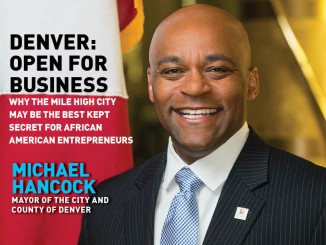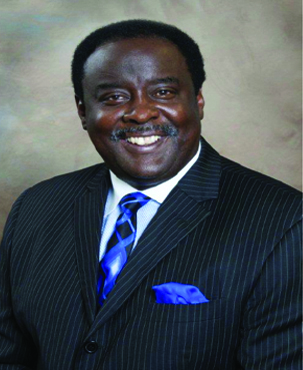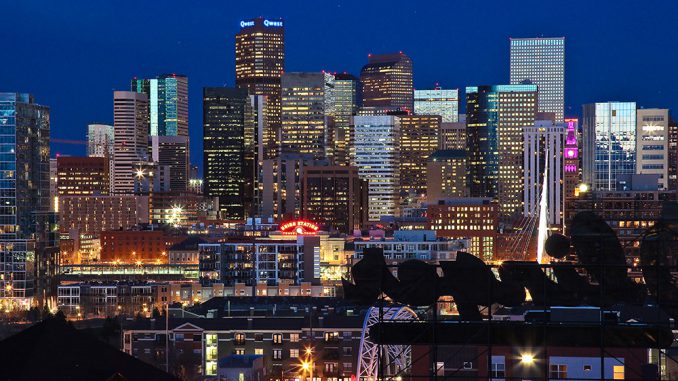
Why the Mile High City May be the Best Kept Secret for African American Entrepreneurs
By Alfonzo Porter
MEA Editor, Western USA
With a small African American population of roughly 11%, according to its 2014 population summary; on the surface, Denver may not appear to be the ideal location for African American entrepreneurs. Yet in fact, Denver may actually be the best kept secret in the nation for growth opportunities for both established and start up black-owned firms.
That’s why Michael Hancock, Mayor of the City and County of Denver, is on a mission. The youthful, energetic Denver native is determined to transform the “Mile High City” into a hub of innovation and opportunity for entrepreneurs; with a particular emphasis on expanding opportunities for minority and women-owned businesses.
Elected Mayor in 2011 after a stint as City Council president, Hancock immediately began a quest to transform Denver into a global competitor. Now, in his second term, his focus is on creating economic opportunities and eliminating the disparities in contracting and procurement that have existed for years.
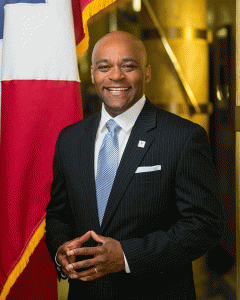
“Our city is growing exponentially. Our economy is highly diverse and I intend on seizing every opportunity to draw all sections of our nation’s ethnically rich populations to our city. I want us to become the small business capitol of the nation” says Hancock.
His efforts are paying off. According to Forbes, Denver is one of the best places in the nation for both business growth and career success. Moreover, Hancock asserts, Denver is also the perfect place for established minority firms who are already doing business with the federal government.
“Well positioned federal contractors will thrive in Denver,” he insists. “Outside of Washington DC, you will not find a better place to locate or to expand than Denver. We have extremely robust federal activity in our city. The opportunities exist here to expand upon their corporate offerings and build a more national presence beyond the east coast.
Additionally, with a flourishing IT, High Tech, and Advanced Industry base, Denver is poised to become a national leader in many of the industries that will dominate the future. Add to that, with its emerging Clean Energy, Bio-Tech, Aerospace, Telecom, and Health Care sectors, and Denver is hard to beat for both the aspiring and seasoned entrepreneur.
“We are interested in intelligent growth and attracting forward thinking firms that will help propel us into the future,” Hancock says. “I want to build an ideal economy. We are at the forefront of large American cities when it comes to sustaining a strong job market. Our cost of living is moderate and we are a regulatory friendly city for business development.”
Although Hancock admits that when he took office four years ago, African American contracting with the city was at one percent. He immediately launched an initiative to address the problem. “I instructed our team to look at our minority procurement rules and policies,” he said. “The study revealed a real problem. I challenged the staff to go to the drawing board to ensure a level playing field for minority contractors. We engaged our small business development office and our City Attorney to improve results and today we are seeing the fruits of those efforts.”
The city is growing rapidly and the opportunities for innovative new businesses have never been better. Metro Denver has jumped to No. 6 in Forbes’ annual ranking of the 20 fastest growing cities in the nation.
Using data from Moody’s Analytics, city leaders assessed the estimated rates of population growth for 2013 and 2014, year-over-year job growth for 2014, and the rate of gross metro product growth—(a.k.a. the economic growth rate–for 2014). They also considered federal unemployment data and median salaries for local college-educated workers, courtesy of Payscale.com. The result is a list of the 20 fastest growing metro areas in America in terms of population and economy. Denver moved from number 13 to the 6th fastest growing city.
Yet, Hancock realizes that Denver is not the only player vying for growth opportunities. He realizes that there is plenty of competition. “Every mayor of every large urban city in America wants to grow. Yet, Denver is uniquely positioned,” he says. “My aim is to deepen our economic bench and that means building upon the capacity of all of our citizens. I’m glad to see well educated, young African Americans coming to Denver to start businesses. I want them to know that not only are they welcomed but that their contributions are valued here.”
With new policies in effect, Hancock has forged ahead with bolstering the city’s Mentor/Protégé programs, supplier diversity initiatives, and working with financial institutions to ensure access to both start-up and operational capital for minority businesses.
“We have already begun to witness an increase in our MWBE applications in the City of Denver. Nevertheless, I have requested a study to detail exactly what those numbers look like, specifically. Additionally, I have ordered that all contracts over $100,000 be opened for public bid. This will allow both minority and women owned business to compete more effectively,” says Hancock.
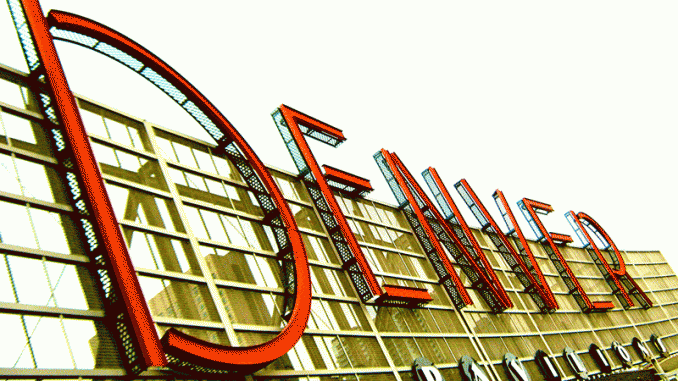
One of the reasons for Denver’s success is that it is business responsive with relatively low corporate taxes. “This is where you are going to find the most regulatory friendly business environment in the nation. Our corporate taxes are among the lowest in the nation,” stated Hancock.
The city is also becoming a major international gateway. “You can get anywhere in the world from here,” Hancock says. “Our direct flights to Europe have increased by 4500 % in the last 4 years. We are connected globally. Our international airport reaches most of the world including the Middle East, South America and Asia.”
With the growth of Aerotropolis (Airport City) at Denver International Airport, the opening of the new 500 room Westin Hotel connected to the airport and future plans for development, the region is primed to help its commercial leaders conduct business worldwide. Beyond that, Hancock says, Denver is a progressive, liberal, and inviting city; both culturally and socially.
Denver’s metro population is nearing three million people. It has a growth rate that has consistently outpaced the national rate every decade since the 1930s. The region grew steadily in the past 10 years, and by 2020, Metro Denver’s population is anticipated to increase to more than 3.5 million. 60% of Colorado’s population resides in the Denver metropolitan area.
“We are a magnet for Millennials of all cultural and ethnic backgrounds,” the Mayor says. “We have an extremely vibrant downtown that provides access to an active lifestyle year-round, 300 days of sunshine per year, and low unemployment are highly attractive features of our city. We are only 30 minutes to the Rocky Mountains—skiing, snowboarding, hiking, camping, hunting, boating, snowmobiling, you name it.” In fact, Denver’s unemployment rate is only 3.8% as of November 2015, according to the Bureau of Labor Statistics.
The Sports fans will also love Denver. It is a city tailor made for the active, energetic, sports enthusiast. The Mile High City is the largest sports mecca in the west with the addition of three huge stadiums within the last seven years. In May 1995, downtown Denver unveiled a new 50,000-seat stadium, Coors Field, for the Colorado Rockies, Denver’s Major League Baseball team. Denver also added the Pepsi Center to the Denver skyline in 1999 and this magnificent stadium hosts the Denver Nuggets of the NBA and the 2001 winner of the Stanley Cup, the NHL’s Colorado Avalanche! Denver has also added Sports Authority Field in 2001 for the NFL’s Denver Broncos to replace the old Mile High Stadium.
Demographically the City & County of Denver has a diverse ethnic population including 11.1% African American; 31.7% Hispanic; 2.8% Asian and 1.3% Native American.
It is a clean, young and green city with over 200 parks and tree-lined boulevards and has always been known to promote health consciousness and fitness.
Also, Denver is the most educated city in the U.S. It boasts the greatest percentage of high school and college graduates of any major metropolitan area in the U.S.; 92.1% of the population in the metro area have high school diplomas and 35% have at least a bachelor’s degree, according to the U.S. Census. The national average is 81.7% for high school diplomas and 23% with a college degree.
The public school system, according to the mayor, is the fastest growing large urban school district in the nation. All academic indicators are moving in the right direction for all student sub-groups. Graduation rates have improved by 60% over the past five years.
“The investments we are making in our schools and general infrastructure reflect our desire to improve upon our intellectual capital, and close opportunity gaps so that we mirror the vast diversity of our city and nation among our business leaders,” he said.
Regardless of the particular industry focus of your firm or your core corporate offerings, Michael Hancock wants you to know that Denver is open for business.
Mayor Hancock is 44 years old and the father of three: Alayna, Jordan, and Janae. He and his wife Mary have been married over 20 years.

